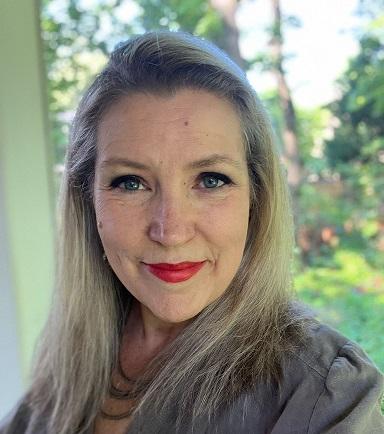Heidi Bardot

Heidi Bardot
Director of the Art Therapy Program, Associate Professor
Department: Art Therapy Program
Contact:
Areas of Expertise
- Trauma, Secondary Trauma, Resiliency
- Immersion and Service Learning
- International Education
- International Ethics
- Grief and Loss
Heidi Bardot, ATR-BC, LCPAT, is Director and Associate Professor of the Art Therapy Program. She is a licensed, registered, board-certified art therapist. She has brought an international focus to the GW Program through her creation of immersion diversity courses and service-learning programs in France, India, United Arab Emirates, South Africa, and Croatia and has assisted in creating the first post-master's program in Croatia. Bardot currently collaborates with local organizations in Lebanon to work with refugees and to train relief workers in art techniques, self-care, and trauma. She has published and presented nationally and internationally on war relief, trauma, resiliency, grief, ethics, and international education. She is an active member of the American Art Therapy Association (AATA) and has held chair and member positions in numerous national and international committees. As Director, she has received The George Washington University Award: For Outstanding Contributions, the Graduate Advisor Award, and was chosen as the GW Commencement Speaker in 2012.
Education
- MA, Art Therapy, George Washington University
- BFA, Graphic Design, Rhode Island School of Design
Publications
Bardot, H. (2019). Can biases ever be right?: The ethics of working internationally. In A. DiMaria (Ed.). The ethics of art therapy. London: Taylor & Francis Books.
Bardot, H. & McCaw, J. (2019). The power of creative expression and ritual: Integrating art therapy into a bereavement camp. In R. Jacobson & M. Wood (Eds.). Handbook of art therapy in hospice and bereavement care. London: Taylor & Francis/Routledge.
Bardot, H. (2018). Art therapy training for relief workers to provide support and sustainability. Journal of Applied Arts & Health, 9(2), 157-169. doi: 10.1386/jaah.9.2.157_1
Potash, J., Bardot, H., Moon, C., Napoli, M., Lyonsmith, A., & Hamilton, M. (2017). Ethical implications of cross-cultural international art therapy. The Arts in Psychotherapy, 56, 74-82.
Bardot, H. (2015). Art therapy. In A. Morkes (Ed.). The teach that in college!? A resource guide to more than 100 interesting college majors, (3rd ed). Chicago, IL: College & Career Press.
Bardot, H. (2013). The universality of grief and loss. In P. Howie, S. Prasad & J. Kristel (Eds.). Using art therapy with diverse populations crossing cultures and abilities. London: Jessica Kingsley Publishers.
Potash, J.; Bardot, H.; Wang, X.; Chan, F.; Ho, A.; & Cheng, C. (2013). Mandalas as indicators of burnout among end-of-life care workers. Journal of Applied Arts & Health, 4(3), 363-377.
Bardot, H. (2012). Utilizing sand tray therapy techniques in grief and loss therapy. In R. Neimeyer, (Ed.) Techniques in grief therapy: Creative strategies for counseling the bereaved. New York, NY: Routledge.
Potash, J.S., Bardot, H. & Ho, R. (2012). Conceptualizing international art therapy education standards. The Arts in Psychotherapy, 39, 143-150.
Bardot, H. (2012). History of Art Therapy Review [Review of the book The modern history of art therapy in the United States, by M.B. Junge]. Art Therapy: Journal of the American Art Therapy Association, 29(2), 99-100.
Bardot, H. (2008). Expressing the inexpressible: The resilient healing of a client and the art therapist. Art Therapy: Journal of the American Art Therapy Association, 25(4), 183-186.
Bardot, H. (2008). Art therapy. In S. Prasad, Creative expressions: Say it with art. Chennai, India.
Classes Taught
- ARTH 6205 History & Theory of Art Therapy
- ARTH 6235 International Social and Cultural Diversity (France, India, South Africa, UAE, Croatia)
- ARTH 6272 Art Psychotherapy & Trauma II: Traumatic Loss and Resiliency and Clinical Practice
- ARTH 6201 Survey of Art Therapy
- ARTH 6241 Assessment Procedures
- ARTH 6261 Ethics & Professionalism
- ARTH 6281 Practicum Supervision
- ARTH 6292 Culminating Project

